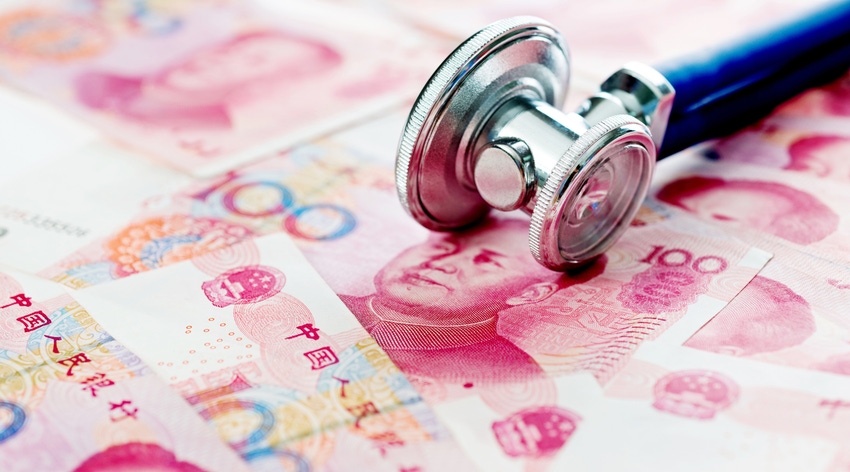Medtronic CEO: China VBP Impact Is ‘Largely Behind Us’
Where does the rest of the medical device industry stand in terms of China's volume-based procurement (VBP) impact?
November 29, 2023

China’s volume-based procurement (VBP) policy has impacted several medical device companies this year, including Medtronic.
In fact, Medtronic CFO Karen Parkhill mentioned in February, during the company’s fiscal year 2023 third quarter earnings call, that China’s VBP policy had affected Medtronic more than many of its competitors, because of the size and breadth of the company’s business in China.
That headwind appears to be mostly in the rear-view mirror for Medtronic now, apart from the neurovascular business where the coils market is subject to VBP. Company executives noted on the fiscal year 2024 second quarter earnings call that Medtronic expects to work through the China VBP impacts by the end of its fiscal year 2024.
“We’re working through the China VBP, but that’s largely behind us,” Medtronic CEO Geoff Martha said, according to Seeking Alpha transcripts of the call. “Still a little bit more to go, but largely behind us.”
Parkhill also said some of the volume-based procurement tenders in China that were expected in the first half have shifted to later in the fiscal year.
What is volume-based procurement?
In November 2018, China rolled out a volume-based procurement policy to force pharmaceutical companies into lowering drug prices. But then, in 2019, China decided to implement a volume-based procurement policy for medical device companies.
The purpose of the policy is to provide uniform pricing throughout the nation, increase technological advancements and innovation in China, focus on high-performing medical devices and affordable medical devices for patients, and lower healthcare costs for the government, according to a white paper on volume-based procurement written by Komarl Urde and published in October 2022 by Beroe, a North Carolina-based procurement specialist.
According to the Beroe paper, medical device products were categorized into two groups based on hospital demand, manufacturer capacity, and raw materials in the national procurement of hip and knee implants.
"With the help of the VBP policy, there was a sharp decrease in the prices of medical devices," Urde writes. "The average selling price of a total knee replacement system was $5,000 before VBP. As the price of knee implants has dropped to much less than $800 on average, patients who have been hesitant to undergo surgical treatment due to economic constraints are now capable of undergoing the procedure."
The paper also explains how domestic competition in China has drastically increased in recent years. Previously, major Western medical device manufacturers dominated the Chinese drug-eluting stent market. Now, domestic Chinese stent makers account for more than 75% of the market share.
"Winning companies need not spend a lot of money on marketing or administrative costs if they win a bid through VBP, and a lower winning price reduces the overall profit," Urde writes.
But that's not to suggest that foreign medical device companies can't succeed in China. According to the Beroe paper, medical devices made by Western companies are considered higher quality than domestically produced products and are favored by Chinese patients if the prices are reasonable.
How VBP is impacting other medtech companies
For some medical device companies, the country’s VBP policy was enough to make them call it quits in the Chinese market. ZimVie, the dental and spine company that spun out of Zimmer Biomet last year,
pulled its spine business out of China due to VBP.
Other medical device companies still feeling the pinch from VBP include Zimmer Biomet, and Johnson & Johnson’s medtech businesses (primarily in spine, trauma, endocutters, energy, and electrophysiology).
“On one hand, certainly, VBP represents a headwind in price. And on the other hand, it also represents an opportunity as you can expand quality products, medical technologies, into more patients,” J&J CEO Joaquin Duato said during the company’s third quarter earnings call, according to Seeking Alpha transcripts.
Duato said the VBP headwinds in the affected medtech businesses will last through the end of the year and part of 2024.
“Again, as we look into 2024, we expect to continue to deliver a strong growth in China, and China remaining a key part of our growth,” he said.
About the Author(s)
You May Also Like



.png?width=300&auto=webp&quality=80&disable=upscale)
